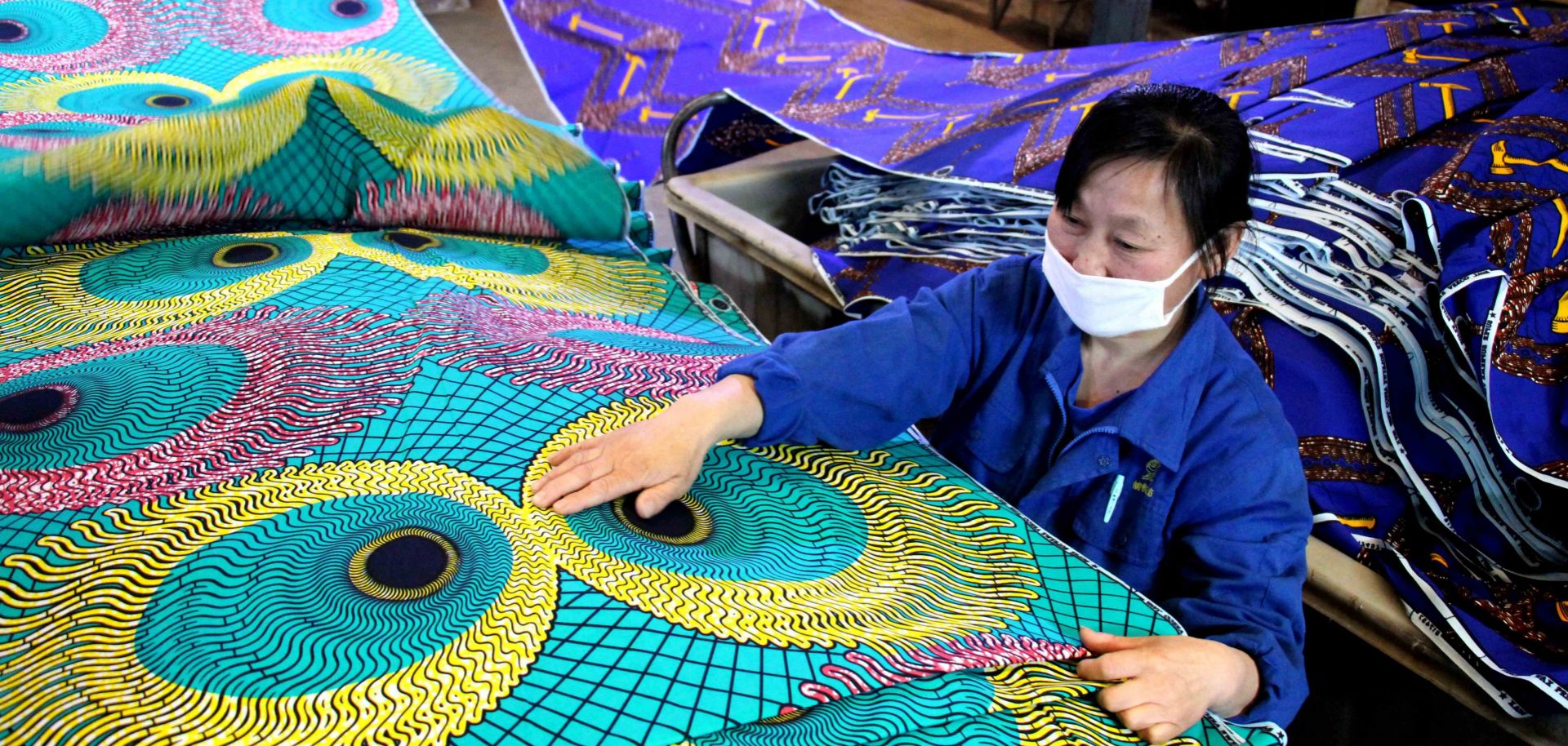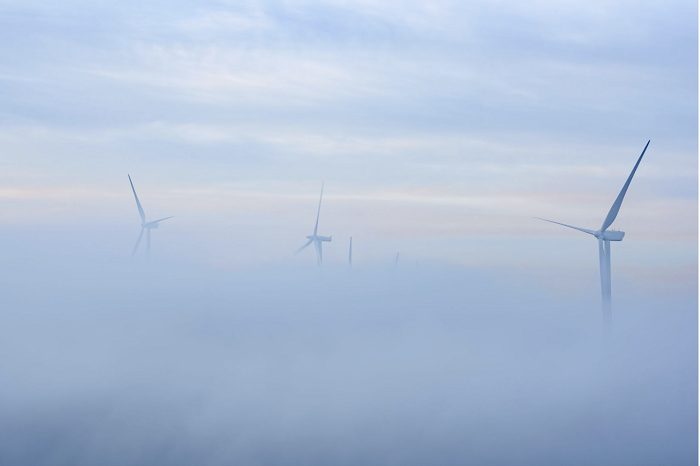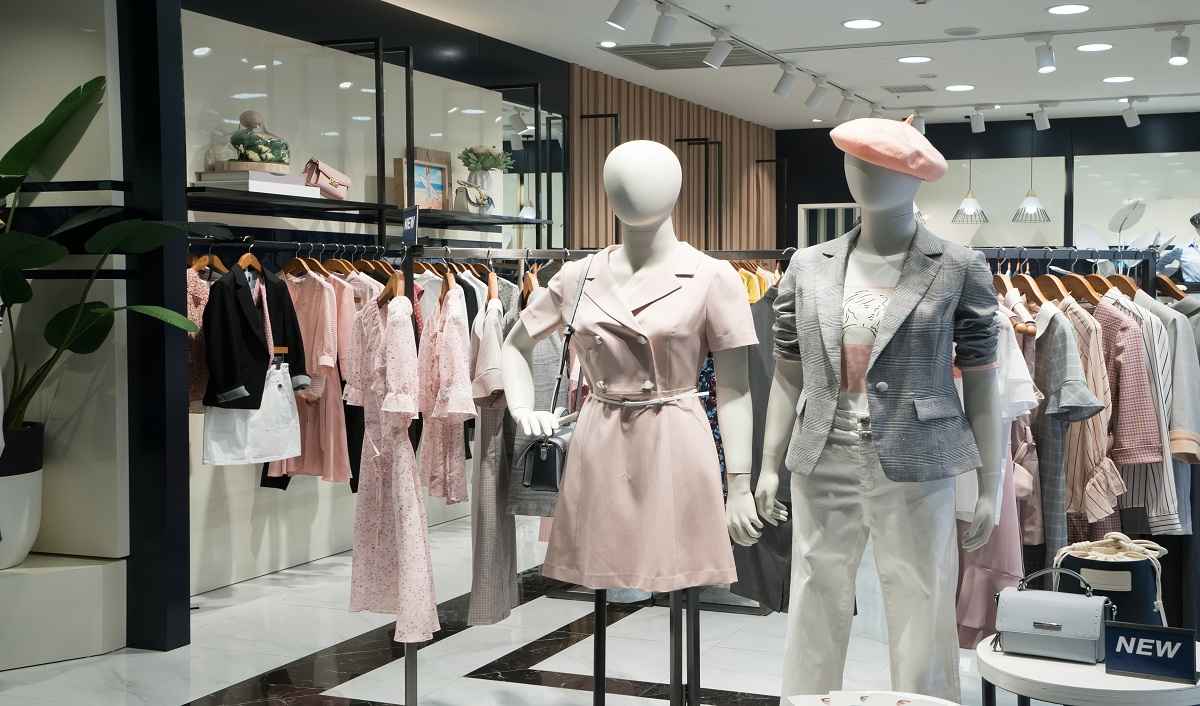
The International Textile Manufacturers Federation (ITMF), as the international forum of global textile industry, is now in a state of flux as the business situation has changed in a post-pandemic world. The just released 18th ITMF Global Textile Industry Survey highlights the ongoing gloomy economic situation but expectations are high for the things to improve this year.
When ITMF tarted the Global Textile Industry Survey in 2021 after Covid abated, the business environment was at an all-time low. High inflation and rising interest rates around the world have been the current drivers of global economy but in 2023, the main problem of the textile supply chain seems to be high inventories at the brand and retail levels.
Unreliable demand in a post-Covid economy
With pent-up frustration among people stuck at home during the two Covid years, there was a surge in demand across the board for consumer durables and apparel once travel restrictions were lifted and economies opened up. Global and domestic brands across countries increased inventories to meet the sudden surge in demand. However, this was short-lived as inflation rose as Russia-Ukraine war pushed up energy prices, consumers pulled up their purse strings, demand slowed down and stocks piled up.
ITMF interviewed many respondents for this survey who confirmed global order intake has steadily decreased since November 2021 once the initial flush of post-Covid demand had waned. In January 2023, it was a negative indicator in all geographical regions around the world except North & Central America and fibre manufactures who saw increased orders for the first time since summer 2022.
The previously high global order backlogs had also been slow and steady in their decrease from 3.1 months in March 2022 to 2.4 months in January 2023. This could be attributed to most brands and retailers hesitating to place orders and add to their inventory with uncertain demand. Added to this were the disruptions in earlier supply chain during Covid years which helped in lessening order backlogs by improving global trade flows. This eventually led to a slight increase in global capacity utilization rate which was mainly driven by garment fibre producers and spinners.
China opening borders boosts demand
With members comprising companies and associations from the textile and allied industries, ITMF’s expectations in the last six months have soared with everyone being globally positive about the upcoming business economy in June 2023. The organization says, textile manufacturers can expect a better situation with countries being in a much better energy situation, prices for gas and other products in Europe and Asia going back to levels seen before the Ukraine war. Secondly and most importantly, the end of the Zero-Covid-policy in China with borders opening up is strengthening demand. China, as one of the largest importers of consumer goods, especially luxury apparels and the return of tourism has given an adrenaline rush to a sown-in-the-dump economy.
The Survey infuses optimism the global economy will see better growth than expected in 2023 which will benefit the textile fraternity and give a fillip to the apparel industry in general.
The Confederation of British Industry (CBI) has launched its first-ever business delegation to explore free trade agreement opportunities in India.
The delegation is focusing on key growth sectors where Indian and UK businesses can develop profitable partnerships such as innovation and sustainability.
The visit also aims to share knowledge on how to scale up unicorns to addressing ways to increase trade in green goods and services between the two countries and contribute to net zero ambitions.
This visit comes in the backdrop of the UK’s negotiating the seventh round of the free trade agreement with India. The potential FTA could boost trade with India by several billion pounds a year by 2035 and increase wages across the UK. With a free trade deal between the UK and India soon to be signed—and agreements such as the UK-India Young Professionals Mobility scheme already in place—UK businesses want to explore how to grasp the huge opportunities that India affords.
The CBI’s first ever delegation to India will put the promise of an FTA into practice—helping businesses develop links with key stakeholders and supporting UK firms to go for growth around the world. UK firms feel since India is on track to become the third largest economy, with a quarter of a billion middle class consumers by 2050, the free trade deal could unlock huge benefits for them.
For the fourth quarter orders for Italian textile machinery fell by 35 per cent compared to the same period in the previous year, says ACIMIT.
The drop from orders abroad was 17 percent while orders collected in Italy were 28 per cent lower than the figures drawn up in 2021.
The ongoing war between Russia and Ukraine, with its related consequences on daily business and trade, and a macroeconomic framework in which uncertainty prevails, have further negatively affected the orders intake. However declining energy prices and a slight fall in inflationare signs of improvement in the business of companies in the sector.
This proves that Italian companies have been capable of responding quickly to new market conditions, as has often happened in other historical periods. However, difficulties remain particularly in the areas of digitalization and sustainability. Creativity, sustainable technology, reliability and quality are the characteristics which have made Italy a global leader in the manufacturing of textile machinery.
Exports amount to more than 86 per cent of total sales. And 30 per cent of Italy’s revenue from the sale of textile machinery derives from the production of technical and innovative textiles. Manufacturers are looking forward to the textile machinery trade show Itma which will be held in Italy, June 8 to 14, 2023.
Premiere Vision will be held in France,July 4 to 6, 2023. The edition is evolving to meet the challenges of the fashion sector’s transformation, driven by the transition to sustainability, regulatory changes, the impact of the public health crisis on clothing consumption, the implications of the geopolitical crisis, the new needs of brands and buyers, adaptation strategies for supply chains, and the new challenges facing manufacturers.
The new edition will reveal an event that has been completely revamped to keep pace with the industry’s changing landscape. The edition’s new features include environmental sustainability as the new paradigm at the heart of its repositioning, the creation of an innovation hub, a revolutionary approach to fashion information and trend forums, and a new service policy for buyers.
After adapting its schedule in 2022, Premiere Vision has now taken a new direction in order to better align with evolutions in the global fashion market. Its privileged relationship with manufacturers and brands has enabled it to work hand in hand to build, test, and adapt a strategy that renews the show’s set-up and services and to accompany the industry’s ecological transition.
As the leading global platform for meetings, business, and communication for the fashion industry, Premiere Vision also proactively offers solutions for the sector.
Global fashion retailer C&A has warned Bangladesh’s C&A Textiles of legal action for using the same name and creating confusion.
The Netherlands-based C&A has been in business since 1841 and has been sourcing from Bangladesh for over three decades. About 156 garment companies in Bangladesh manufacture garments for C&A. The global brand under the C&A trademark trades in clothes, apparel, and accessories and has a reputation across the world. This name is registered in several countries around the world.
The multinational company has been sourcing from Bangladesh for a long time and so the name has become well known in the country. It says if the textile company does not change its name, legal action will be taken through court. Bangladesh-based C&A Textile, which is engaged in manufacturing textiles and garments, was registered in 2001 and has a factory in Chattogram.
The company ceased production in 2017 due to its owners' irregularities and loan defaults. Then in 2021, the Alif Group, another garment trader in the country, bought the company. Currently, Alif has managed to bring the company back to partial production. C&A Textiles got listed on the stock market in 2014. After the listing, the owners of the company exited by selling shares secretly.
British fashion giant Frasers Group has completed its acquisition of five brands from rival JD Sports.
Frasers had reached an agreement to buy 15 brands from JD and has completed the acquisition of five of the remaining seven brands: Cricket, Tessuti, Scotts, Giulio, and Choice.
The other brands include Base Childrens wear, Choice, Clothing sites (including Brown Bag Clothing), Cricket, Giulio, Kids Cavern, Missy Empire, Nicholas Deakins, Pretty Green, Prevu Studio, Rascal Clothing, Tessuti (including Xile), Scotts, Watch Shop and Top grade Sportswear (including Get The Label).
As for JD, this divestment will allow it to focus on its core premium sports fashion labels, which include JD Sports itself, as well as Size?, Foot Patrol, and Shoe Palace, among others. JD feels that the most significant opportunities lie in the continued international development of the group’s global sports fashion businesses.
Frasers’ fast-growing portfolio includes Sports Direct, House of Fraser, and Jack Wills. The group is pushing forward with its aggressive expansion strategy, which sees it snapping up smaller or struggling rivals and investing in more upmarket brands. In the past year the group has acquired Missguided, Studio Retail, and I Saw It First, among others, and has snapped up stakes in the likes of Hugo Boss, Mulberry, and N Brown.
The fashion industry is responding to the tragedy in Turkey and Syria.
Large areas in Turkey and Syria have been hit by multiple earthquakes. The death toll is rising and the images of the disaster area are moving around the world.
Turkey is one of the major production countries for clothing and textiles, with many factories located in the country.Marketplace giant Amazon has activated disaster relief capabilities and is responding by assisting Red Cross and other relief organisations with their urgent needs. Donated items will be sent by Amazon to its distribution center in Istanbul and then distributed further.
This action is just the beginning of the help Amazon intends to provide. In the coming days, it will work with local organisations and aid groups to identify needs and deploy Amazon's logistics and delivery system to assist with these needs. Amazon has over 2,000 employees in Turkey but has no locations in the disaster areas.
Various clothing and textile organisations from Turkey have launched relief campaigns and collection drives for items such as clothes, nappies, stoves and food. Turkey and Syria are prone to earthquakes. An example is the earthquake of 1999. Due to a combination of the disaster, economic problems and exchange rates at the time, the Turkish clothing and textile industry saw exports decline for the first time in thirty years. However, the industry recovered from the impact between 2000 and 2007.
Amann’s factory in Tamil Nadu, India is state-of-the-art in terms of resource conservation and sustainable processes and the first Amann production site worldwide equipped with a zero liquid discharge wastewater treatment plant.
This is the group’s first production site in India and it will begin operations in 2023. Zero liquid discharge is a wastewater management system that ensures that there will be no discharge of industrial wastewater into the environment. This will allow the entire production water to be recycled and reused completely.
Moreover, the plant will also have a green electricity profile as photovoltaic systems will cover the electricity demand of the whole plant. The investment into this green, state-of-the-art production site follows the highest demands in terms of sustainability.
Amann, founded in 1854 in Germany, is one of the leading manufacturers of high-quality sewing threads, embroidery threads for garments and shoes and smart yarns. The sewing and embroidery threads are manufactured exclusively in its own production facilities in Europe and Asia. Amann’s bonded sewing thread Outdoor-Pro was developed especially for extreme weather conditions. The bonded sewing thread made from high-strength polyester continuous filament is equipped with an environmentally friendly, PFC-free, water-repellent finish as standard. Outdoor-Pro has excellent resistance to UV radiation and allows for very good light fastness results.
The University of Michigan has developed garment labels woven directly into the fabric.
This is a barcode. The photonic properties of the fibers can be cusomised to make them visible to the naked eye, readable only under near-infrared light or any combination.
Ordinary tags often don’t make it to the end of a garment’s life—they may be cut away or washed until illegible and tagless information can wear off.
Recycling could be more effective if a tag was woven into the fabric, invisible until it needs to be read. This is what the new fiber does.The team developed the technology to incorporate the photonic properties into a process that would be compatible with large-scale production.They accomplished the task by starting with a preform—a plastic feedstock that comprises dozens of alternating layers. In this case, they used acrylic and polycarbonate. While each individual layer is clear, the combination of two materials bends and refracts light to create optical effects that can look like color.The preform was heated and then mechanically pulled into a hair-thin strand of fiber.
While the manufacturing process method differs from the extrusion technique used to make conventional synthetic fibers like polyester, it can produce the same miles-long strands of fiber. Those strands can then be processed with the same equipment already used by textile makers.
Less than 15 per cent of the 92 million tons of clothing and other textiles discarded annually are recycled—in part because they are so difficult to sort. These woven-in labels could change that.
Vietnam’s earnings from textile and garment exports fell 30 per cent in January 2023.
The main factors affecting the country’s garment and textile sector this year include high interest rates and inflationary pressures and the difficulties are likely to linger until mid-2023. So Vietnam’s enterprises are investing in material supply chain and automation technology while relying less on international markets and further exploiting the domestic market.
Vietnam’s largest export markets include China, Japan, the European Union, South Korea and the United States.Vietnam’s garment, textile and footwear sector was able to achieve double-digit growth in 2022. High inflation in the majority of major Vietnamese markets such as the United States and the EU will have an impact on the furniture, garment and textile, footwear, electronics, and plastics sectors, moving forward.
With a decline in the number of orders, the export market for the textile, garment and footwear industry is therefore forecast to remain quiet until the end of the first quarter of the year.As the major export industries of the national economy, the textile and footwear industry has decided to retain skilled workers, promote investment in the production of raw materials and auxiliary materials, focus on producing artificial fabrics, as well as encourage the production of domestic yarns.
- 1
- 2
- 3
- 4
- 5
- 6
- 7
- 8
- 9
- 10
China's Luxury Crossroads: Consolidation or retreat for global giants?
For years, China has been the undisputed El Dorado for global fashion and luxury brands. A growing middle class, with... Read more
Fashion for Good and Arvind unveil Future Forward Factories in India to cut text…
Fashion for Good and Arvind Limited have launched the Future Forward Factories India initiative, a major push to reshape the... Read more
The Scope 3 Challenge: Unpacking the elephant in the emissions room
In the escalating global focus on combating climate change, businesses are under pressure to account for their carbon footprint. While... Read more
Right Size, Right Impact: Personalized fit weaving a sustainable future for fash…
With growing environmental consciousness, the fashion industry, long criticized for its detrimental impact, is looking for new and innovative ways... Read more
From Runway to Retail Shelf: Why fashion needs a dose of FMCG discipline
The fashion industry, often lauded for its artistry and emotional appeal, stands at an intriguing crossroads. While it captivates with... Read more
Global Sourcing Expo spotlights Australia's sustainable fashion growth amid supp…
Australia's demand for sustainable fashion is reaching new heights, driven by increasing consumer awareness and a rising wave of conscious... Read more
Shein’s climate targets validated by SBTi, but doubts persists about green crede…
Fast fashion major Shein has announced a major milestone in its sustainability journey, with its climate targets officially validated by... Read more
Global apparel industry a mixed bag of growth and caution in 2025: Wazir Advisor…
The global apparel industry has entered the second quarter of 2025 with renewed momentum, marked by strong import demand, shifting... Read more
From price tags to political peril, geopolitics redefines the sourcing game
The racks of fast fashion outlets and the digital storefronts showcasing the latest apparel trends mask a change occurring behind... Read more
Tokyo Textile Scope concludes successfully, marks a new era for Japan’s textile …
New venue and format signal fresh start for Japan’s textile industry The inaugural edition of Tokyo Textile Scope (TTS), organised by... Read more












